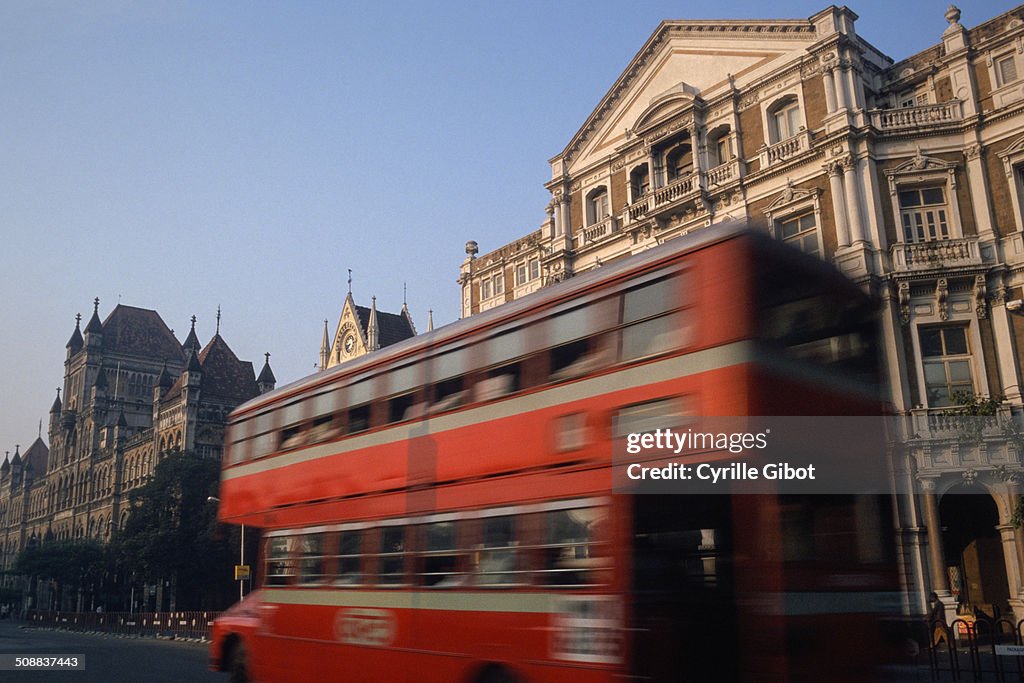Garima Sharma, Pune
Mumbai, the bustling metropolis on the western coast of India, bid a heartfelt farewell to an iconic mode of transportation as the last double-decker bus took its final journey through the city’s crowded streets. The beloved red double-decker buses, which had been an integral part of Mumbai’s public transport system for over five decades, have now become a nostalgic memory.
The decision to retire the double-decker buses came after years of declining ridership and maintenance challenges. Once a symbol of Mumbai’s unique charm, these distinctive buses were gradually replaced by more modern and efficient modes of transportation, such as air-conditioned buses and the metro.
The last ride, which was scheduled to depart from the historic Ballard Estate bus depot, drew a crowd of enthusiasts, locals, and former commuters who wanted to witness the end of an era. Many shared their fond memories of traveling on these buses, reminiscing about the thrill of sitting on the upper deck, gazing out at the city’s skyline.
One of the passengers, 62-year-old Ramesh Sharma, who had been using double-decker buses since his school days, said, “This is a sad day for Mumbai. These buses were a part of our daily lives, and now they are disappearing forever. It feels like we are losing a piece of our heritage.”
The Gateway of India, Marine Drive, and Chhatrapati Shivaji Terminus were among the most recognizable Mumbai monuments that were traversed during the last leg of the journey. People lined the streets, saying goodbye and taking pictures of the historic moment with their iPhones as the bus traveled through the city.
It was not decided to retire the double-decker buses lightly. In order to maintain and repair the outdated fleet, the Brihanmumbai Electric Supply and Transport (BEST) Undertaking, which runs Mumbai’s bus services, had numerous difficulties. As spare parts became harder to find and safety concerns increased, these buses were gradually phased out.
The end of Mumbai’s double-decker era also raises concerns regarding the preservation of the city’s extensive transportation history. To ensure that future generations can understand and appreciate their contribution to the growth of the city, some have urged for the establishment of a museum or display devoted to the history of these recognizable buses.
There was a gloomy mood in the air as the last double-decker bus arrived at its destination at Churchgate Station. Rajesh Tiwari, the conductor who had worked on these buses for more than 20 years, encapsulated the feeling when he said, “It’s the end of an era, but we will always carry the memories of these red giants in our hearts.”
The demise of Mumbai’s double-decker buses represents an important turning point in the city’s history and serves as a reminder that development frequently comes at the expense of treasured customs and symbols.
